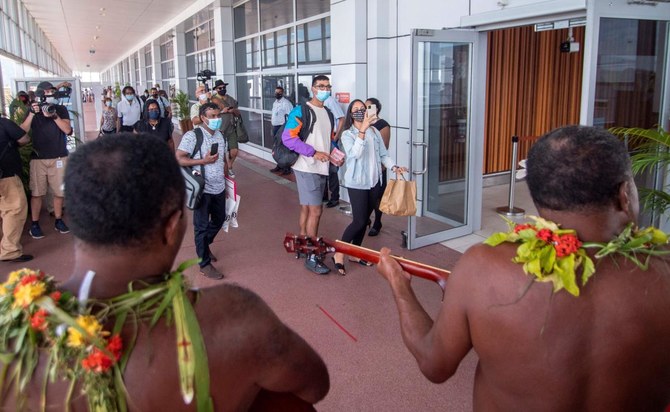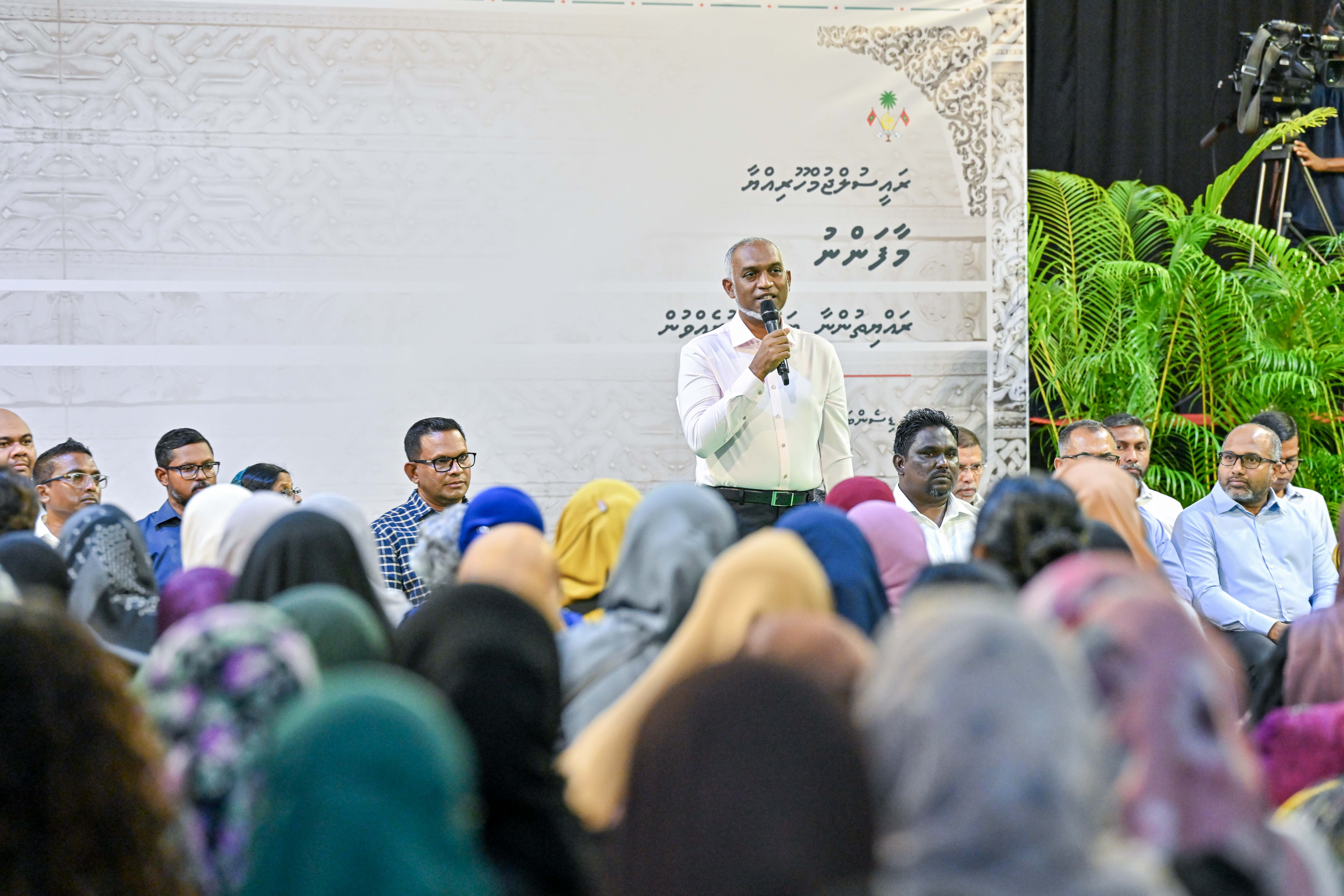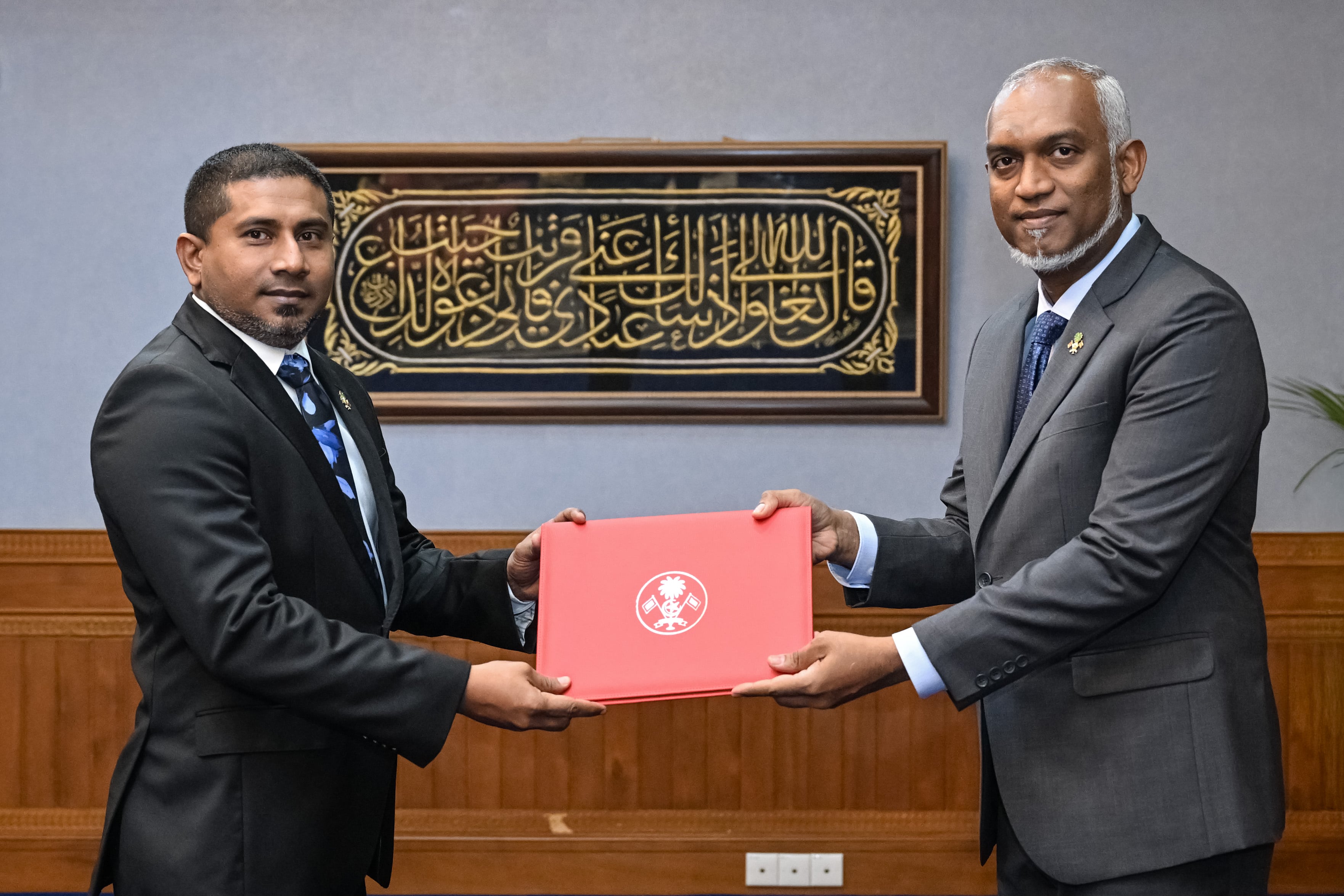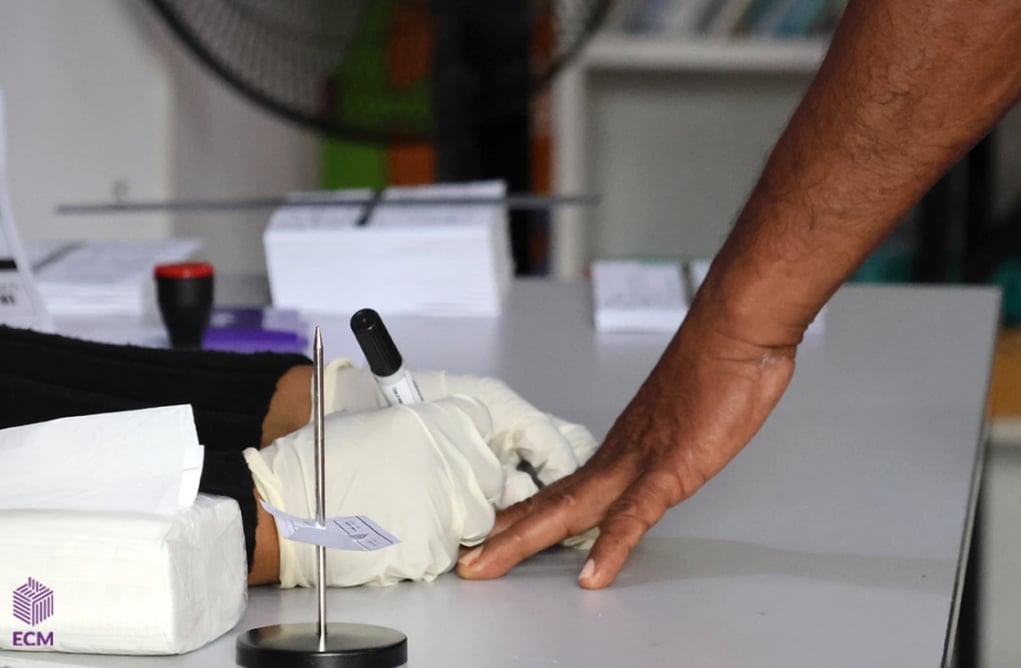Fiji reopened its border to international travelers for the first time in nearly two years on Wednesday, as the Pacific Island country seeks to revive its dominant tourism industry.
The first flight carrying over 200 passengers touched down at Nadi airport today morning, ending 615 days of international isolation for the tourism-dependent economy.
Tourism Fiji chief executive Brent Hill said resorts on the two main islands of Viti Levu and Vanua Levu were gearing up for an influx of foreign travelers.
"We've noted around 75,000 bookings for the next couple of months, which is outstanding," he said.
"We know our job has just started and we look forward to seeing more tourists coming in 2022."
Tourists arriving will have to stay three nights in an approved resort and undergo rapid testing. They can move around designated areas, including bars and restaurants within the hotels, while they can embark on some day trips and activities.
Fiji shut its border to all foreign nationals in March 2020 to curb the spread of COVID-19 in a desperate bid to stop its limited medical facilities from being overrun.
With about 90 percent of all Fijian adults now fully vaccinated, the Pacific Island reopened its border to tourists from a small number of countries — much to the relief of tourism operators.
Tourism accounts for 40 percent of Fiji’s economy and the border closure saw an estimated 10 percent of the population unemployed.
The first flight carrying over 200 passengers touched down at Nadi airport today morning, ending 615 days of international isolation for the tourism-dependent economy.
Tourism Fiji chief executive Brent Hill said resorts on the two main islands of Viti Levu and Vanua Levu were gearing up for an influx of foreign travelers.
"We've noted around 75,000 bookings for the next couple of months, which is outstanding," he said.
"We know our job has just started and we look forward to seeing more tourists coming in 2022."
Tourists arriving will have to stay three nights in an approved resort and undergo rapid testing. They can move around designated areas, including bars and restaurants within the hotels, while they can embark on some day trips and activities.
Fiji shut its border to all foreign nationals in March 2020 to curb the spread of COVID-19 in a desperate bid to stop its limited medical facilities from being overrun.
With about 90 percent of all Fijian adults now fully vaccinated, the Pacific Island reopened its border to tourists from a small number of countries — much to the relief of tourism operators.
Tourism accounts for 40 percent of Fiji’s economy and the border closure saw an estimated 10 percent of the population unemployed.


















